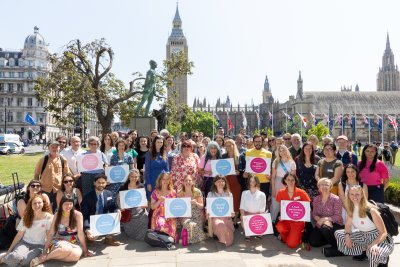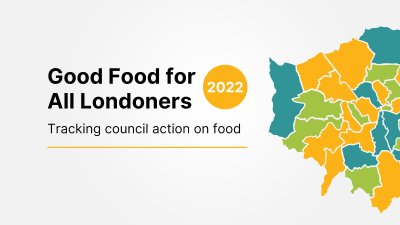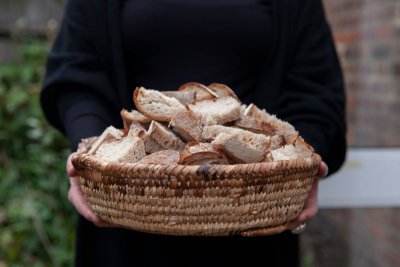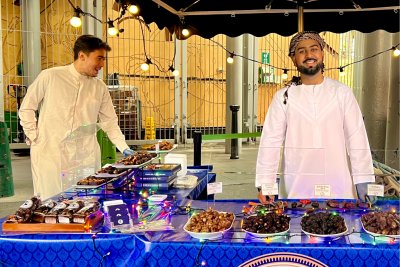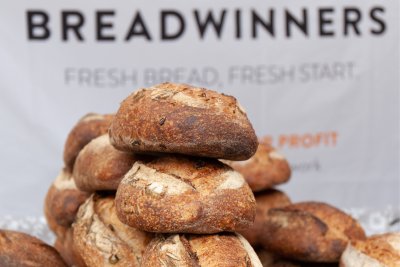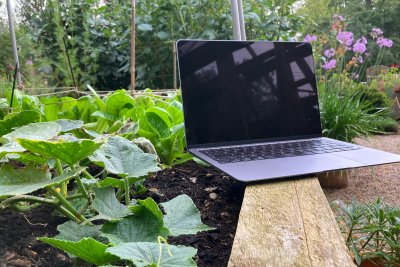London restaurant goers hungry for change
London's restaurants are missing out on a booming market for local and ethical food, according to a new report, One Planet Dining: London's growing market for eating out sustainably, published this week by one of the capital's leading sustainable food organisations, London Food Link.(1)
 “In the coming years, more and more people will be interested in the provenance of restaurant food - local food and sustainability will be key,” says Geetie Singh, founder and managing director of the world's first organic certified pub, the Duke of Cambridge in Islington.(2) “Restaurants that don't recognize this will be left behind.”
“In the coming years, more and more people will be interested in the provenance of restaurant food - local food and sustainability will be key,” says Geetie Singh, founder and managing director of the world's first organic certified pub, the Duke of Cambridge in Islington.(2) “Restaurants that don't recognize this will be left behind.”
Despite inspiring examples like this, One Planet Dining found many others that do not communicate sustainability to their customers. Interviews with customers show that they would welcome more information, confirming foodservice industry research showing that almost three quarters of customers say they want to see local foods named on restaurant and café menus, in particular, vegetables, meat and poultry.(3) The few restaurants that do promote sustainable food have benefited from market differentiation, supportive media coverage, and increased customer and staff loyalty.
Oliver Rowe, who runs the restaurant Konstam at the Prince Albert in Kings Cross, comments,(4) “Konstam's customers have become more and more engaged with what we're trying to do. It's clear we're not only getting the message across that local produce is delicious and ethical, but also that there's a growing desire to change the way we think about food.”
British consumers are increasingly concerned about the ethics of the food that we buy, with a 2006 Mintel report showing us spending over £2 billion on 'ethical foods', including organic, Fairtrade, and locally grown food and free-range eggs – an increase of 62% on 2002.(5) While the retail sector has started to respond to these consumer concerns, so far the hospitality sector has lagged behind. With Britons now spending more on out-of-home meals than on grocery shopping(6) and eating more out-of-home meals than any other country including the US,(7) the potential market for sustainable dining in London is huge.
Many restaurant owners, while keen to exploit this growing market opportunity, lack the information and skills to do so. “We rarely came across examples of restaurants or suppliers that had been offered professional support to promote sustainability,” said Ben Reynolds, coordinator of London Food Link. One Planet Dining therefore recommends:
- Training for caterers in how to find, buy and cook with fresh, local and seasonal food.
- Coordination of suppliers, and marketing support for food produced in close to London, with improved local food infrastructure and possibly a 'Local to London' brand.
- Free environmental audits for restaurants to help them identify ways to improve the sustainability of their waste, water, energy and food supply. (8)
- Establishing a 'green restaurant' association. (9)
ENDS
Press contact: Ben Reynolds, London Food Link project officer, tel (work): 0203 5596 777; (mobile): 07939 202711.
Download or order a paper copy of One Planet Dining from the Sustain publications catalogue.
Notes
London Food Link interviewed 27 restaurateurs from across the capital – including many who already use local, organic and Fairtrade produce. Researchers also studied restaurant trends and consumer research, interviewed industry experts, and undertook a survey of restaurant customers in four areas of London. Sustainable food entrepreneurs interviewed for the One Planet Dining report include:
- Caroline Bennett, managing director of Moshi Moshi sushi restaurant (five restaurants in London, http://www.moshimoshi.co.uk/ , which works with fishing communities to ensure sustainable fishing practices, and keeps their menu flexible enough to accept the range of fish species caught, to reduce wasted catch.
- Henry Dimbleby, co-founder of Leon restaurants (four restaurants in London, http://www.leonrestaurants.co.uk/), who is creating a healthy fast-food brand that features locally grown food, with sustainability targets for his buyers.
- Cyrus Todiwala, Executive Chef of Spice Namaste (east London, near Tower Hill, http://www.cafespice.co.uk/), which uses organic and free-range produce from farmers that protect the environment, and supports British farmers wherever possible, putting a different twist on Indian cuisine.
Print copies of One Planet Dining are available for £10. To order, contact Ben Reynolds on ben@sustainweb.org or 0203 5596 777. The report can also be downloaded for free from https://www.sustainweb.org/publications/ - although donations are appreciated.
- London Food Link is a project of Sustain: The alliance for better food and farming. Representing around 100 national public-interest organisations, Sustain (a not-for-profit organisation) advocates food and agriculture policies and practices that enhance the health and welfare of people and animals, improve the working and living environment, promote equity and enrich society and culture.
- The Duke of Cambridge serves local, seasonal and organic food and drink, and is certified by the Soil Association. See www.sloeberry.co.uk/duke.html for more information.
- Geraldine Padbury, Retail and Foodservice Opportunities for Local Food, Institute of Grocery Distribution, 2006
- Konstam at the Prince Albert in north London, near King's Cross, buys about 90% of its produce from food growers in the Greater London area. See http://www.konstam.co.uk/ for more information.
- Mintel news release, 13th October 2006: 'Green is the new black' as Brits turn to ethical food
- BBC news report, 18 August 2006, Eating out overtakes home dining – reporting on figures from the Office for National Statistics. See:http://news.bbc.co.uk/1/hi/business/5263156.stm
- Datamonitor, New Opportunities In Out-of Home Food and Drinks Consumption, 2006, see: http://www.datamonitor.com/
- London Food Link is part of the 'Greener Food' project run by London Sustainability Exchange, which offers catering premises free audits of their food supply chains, waste, energy and water. For more information contact Charlotte Jarman on charlotte@sustainweb.org or 0203 5596 777.
- London Food Link recently established Ethical Eats, a network of the capital's eateries brought together to champion the ethical approach to catering. The network will meet several times each year to discuss issues affecting the restaurant trade such as ethical sourcing of ingredients, dealing responsibly with waste and putting sustainability at the heart of catering training. The next meeting of the network will be a 'meet the producer' event on 5th June. Restaurants and other catering businesses interested in joining the network should contact Charlotte Jarman on 0203 5596 777 or charlotte@sustainweb.org.
Published Friday 4 May 2007
London Food Link: London Food Link brings together community food enterprises and projects that are working to make good food accessible to everyone in London to help create a healthy, sustainable and ethical food system for all.
